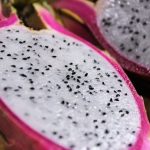Overview:
Guava extract is a natural product derived from the fruit of the guava tree, which is native to Central and South America. The guava fruit is an important source of dietary fiber, vitamins, minerals, and various phytonutrients. Extracts of the fruit are often used to make dietary supplements, beverages, and other products.
The guava is a small, sweet fruit with a yellow-green skin and a white flesh that has a flavor that is both tart and sweet. It is also a good source of dietary fiber, Vitamin C, Vitamin A, magnesium, potassium, and manganese. In addition, it contains several important phytonutrients, such as carotenoids, flavonoids, and polyphenols. These phytonutrients are powerful antioxidants that can help protect the body from damage caused by free radicals.
Extracts of guava are often used to make dietary supplements. These supplements typically contain concentrated amounts of the guava fruit’s essential nutrients, making them a convenient way to get the health benefits of the fruit without having to consume large amounts of it. The supplements are often taken as a single dose or in the form of capsules, tablets, or liquids.
Some studies have suggested that guava extract may help lower cholesterol levels and reduce the risk of heart disease. The extract may also help reduce inflammation and boost the immune system. It is thought to have anti-cancer properties as well, although further research is needed in this area.
In addition to dietary supplements, guava extract is also used as a flavoring agent in food and beverages. The extract can add a sweet, tart flavor to a variety of products, including jams, jellies, juices, and smoothies. It is also used in some cosmetic products, such as soaps and lotions, to add fragrance and provide skin-healing properties.
The extract is also used in traditional medicine to treat a variety of ailments. It is believed to have antibacterial and anti-inflammatory properties and is used to treat skin conditions such as acne, psoriasis, and eczema. It is also thought to help relieve digestive issues such as constipation and diarrhea.
In conclusion, guava extract is a natural product derived from the fruit of the guava tree. Extracts of the fruit are used to make dietary supplements, beverages, and other products. It is also used in traditional medicine to treat a variety of ailments. Studies have suggested that guava extract may help lower cholesterol levels, reduce inflammation, and even have anti-cancer properties. Furthermore, it is used as a flavoring agent in food and beverages, and in some cosmetic products as well.
The history of guava extract in use can be traced back to traditional folk medicine of South and Central America. This extract has been used for centuries as a natural remedy for a variety of ailments, including digestive issues, fever, and skin problems.
In the 16th century, Spanish explorers brought guava to the Caribbean islands, where it was quickly adopted as a staple of traditional medicine. The extract was used for a variety of purposes, including treating fever, digestive problems, and skin disorders.
In the 19th century, guava extract was used to treat malaria and other diseases. A study conducted in 1875 showed that guava extract was more effective than quinine in treating malaria.
In the 20th century, the extract was further studied and its medicinal properties were confirmed. It was found to have antioxidant and anti-inflammatory properties, and to be effective against a range of infections.
Today, guava extract is widely used in traditional and alternative medicine. It is available in a variety of forms, including capsules, tablets, and liquid extracts. It is also used in cosmetic products, such as soaps, lotions, and facial creams, as well as in foods and beverages.
The extract is believed to have a number of health benefits, including boosting immunity, aiding digestion, improving skin health, and reducing inflammation. It is also believed to have anti-viral, anti-bacterial, and anti-fungal properties.
The extract is generally considered safe for most people, although those with allergies or sensitivities to certain ingredients should be cautious. It is also important to note that the extract should not be used in place of professional medical advice.
Side Effects of Guava Extract:
The most common side effects of guava extract include nausea, headaches, vomiting, and diarrhea. Some people may experience allergic reactions to guava extract, such as skin rash, hives, or itching. In rare cases, anaphylaxis can occur. It is important to consult a doctor before taking guava extract to ensure it is safe for you.
Summary of Guava Extract:
This article discusses the health benefits of guava extract and how it can help improve overall health. The article explains that guava extract is rich in antioxidants, which can help to protect the body from free radicals that can cause cell damage. It also contains vitamins A, B, and C, as well as minerals such as iron, potassium, and magnesium. In addition, guava extract has anti-inflammatory and anti-bacterial properties, which can help to reduce inflammation and fight infection. Finally, the article notes that guava extract may be beneficial for those with diabetes due to its ability to help regulate blood sugar levels.
Frequently Asked Questions:
What is Guava Extract?
Guava extract is a natural extract derived from the fruit of the guava tree. It is packed with antioxidants, vitamins and minerals, and is known for its ability to help reduce inflammation, improve skin health, and boost the immune system. It can be used in a variety of products such as smoothies, juices, teas, and more.
What are the benefits of Guava Extract?
Guava extract is packed with antioxidants, vitamins, and minerals that can help reduce inflammation, improve skin health, and boost the immune system. It also helps to reduce blood sugar levels, reduce cholesterol, and improve digestive health. Additionally, guava extract has been known to help reduce symptoms of colds, flus, and other illnesses.
How do I use Guava Extract?
Guava extract can be used in a variety of ways. It can be added to smoothies, juices, teas, and more. Additionally, it can be used topically as a face mask or applied directly to the skin. You can also find guava extract in many health food stores and online retailers.









